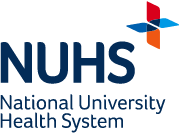-support-group/mds1.jpg?sfvrsn=dedda49e_1)
About Us
Established since 2009, the Haematopoietic Progenitor Cell Transplant (HPCT) Support Group is organised by the multidisciplinary HPCT team at NCIS. It comprises of survivors, patients, primary caregivers and healthcare professionals. It is open to anyone affected by malignant haematological conditions (blood cancer).
Our Mission
The Haematopoietic Progenitor Cell Transplant (HPCT) Support Group aims to help HPCT patients, as well as their caregivers and families, cope with the social and emotional challenges of undergoing HPCT by providing vital information and personalised support services.
Activities & Programmes
- The Befriender Programme introduces newly diagnosed malignant haematological patients to cancer survivors, enabling real personal approach on coping strategies besides providing support and care.
- Caregiver support sessions led by medical social workers to help caregivers cope with the challenges of caring for their loved ones
- “NCIS Celebrates Life!” party to celebrate the end of year festivities and to look forward to a new year ahead
For more information, download a copy of the Haematopoietic Progenitor Cell Transplant (HPCT) Support Group brochure here.
Stories of Hope
Read real-life stories of our cancer warriors and be inspired by their journey of courage, strength and faith!
Deshi was at the lowest point of her life. Her self-esteem hit rock bottom. Usually image-conscious, Deshi found her loss of hair, skin darkening and facial swelling hard to accept. She also lost 10kg during this period, bringing her weight down to a mere 45kg. Her physical appearance took a toll on her mentally, triggering constant mood swings and bouts of frustration, which she took out on her boyfriend and nurses.
- Excerpt from Deshi's story
Read Deshi's story here.
Narita found herself unwittingly forced into a waiting game – a sick cycle carousel of chemotherapy treatments over and over, till a bone marrow donor match could be found. The odds were 1 in 20,000. It felt like a ticking time-bomb as Narita only had months to live. Her brother who initially tested as a match was found physically unfit to donate his bone marrow. Narita was hit with a wave of disappointment as her life now rested in the hands of a stranger who dared and cared about making a difference.
- Excerpt from Narita's story
Read Narita's story here.
Dinesh’s first thought was death, a one-way ticket out of this predicament. However, as a young father of 32 with a housewife and two toddlers to care for, Dinesh’s death wish was immediately replaced with thoughts of his family; what would happen to them if he was no longer around, how his babies were to grow up without a father figure and how the family would survive without its sole breadwinner.
- Excerpt from Dinesh's story
Read Dinesh's story here.
For more stories of hope, please click here.
More Information on Leukaemia
For more information on leukaemia and our treatment approach, please click here.
Contact Us
If you wish to find out more, please email [email protected].

-support-group/mds1.jpg?sfvrsn=dedda49e_1)
-support-group/haematopoietic-brochure.jpg?sfvrsn=82364f63_1)
.jpg?sfvrsn=4b70f5c7_1)
.jpg?sfvrsn=627f2afd_1)
-support-group/dinesh-diagnosed-with-leukaemia.jpg?sfvrsn=346aebcc_1)














